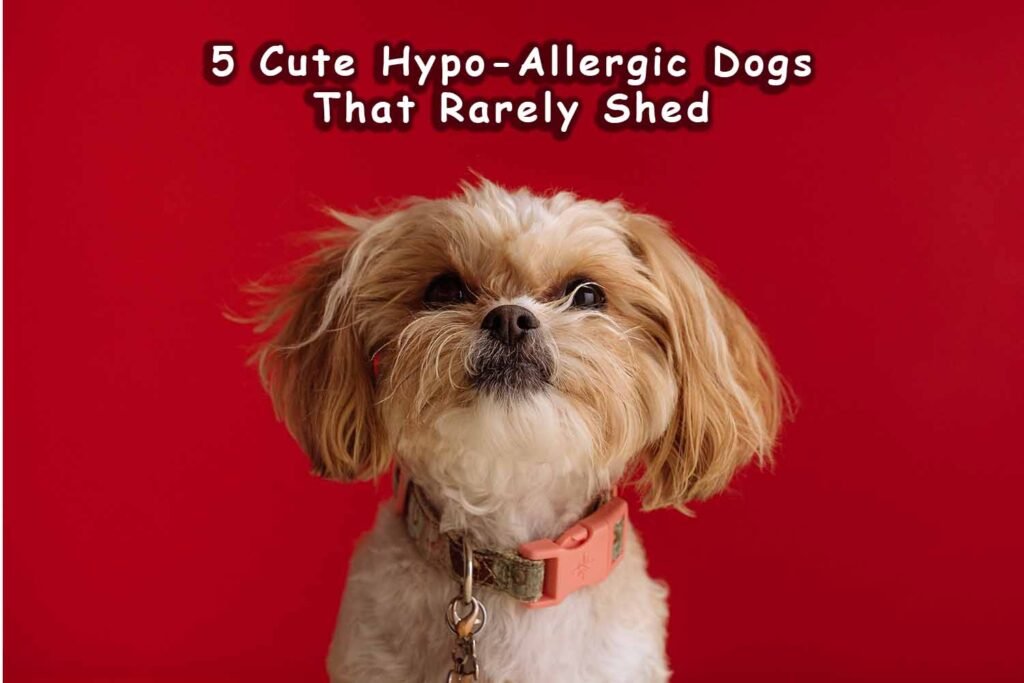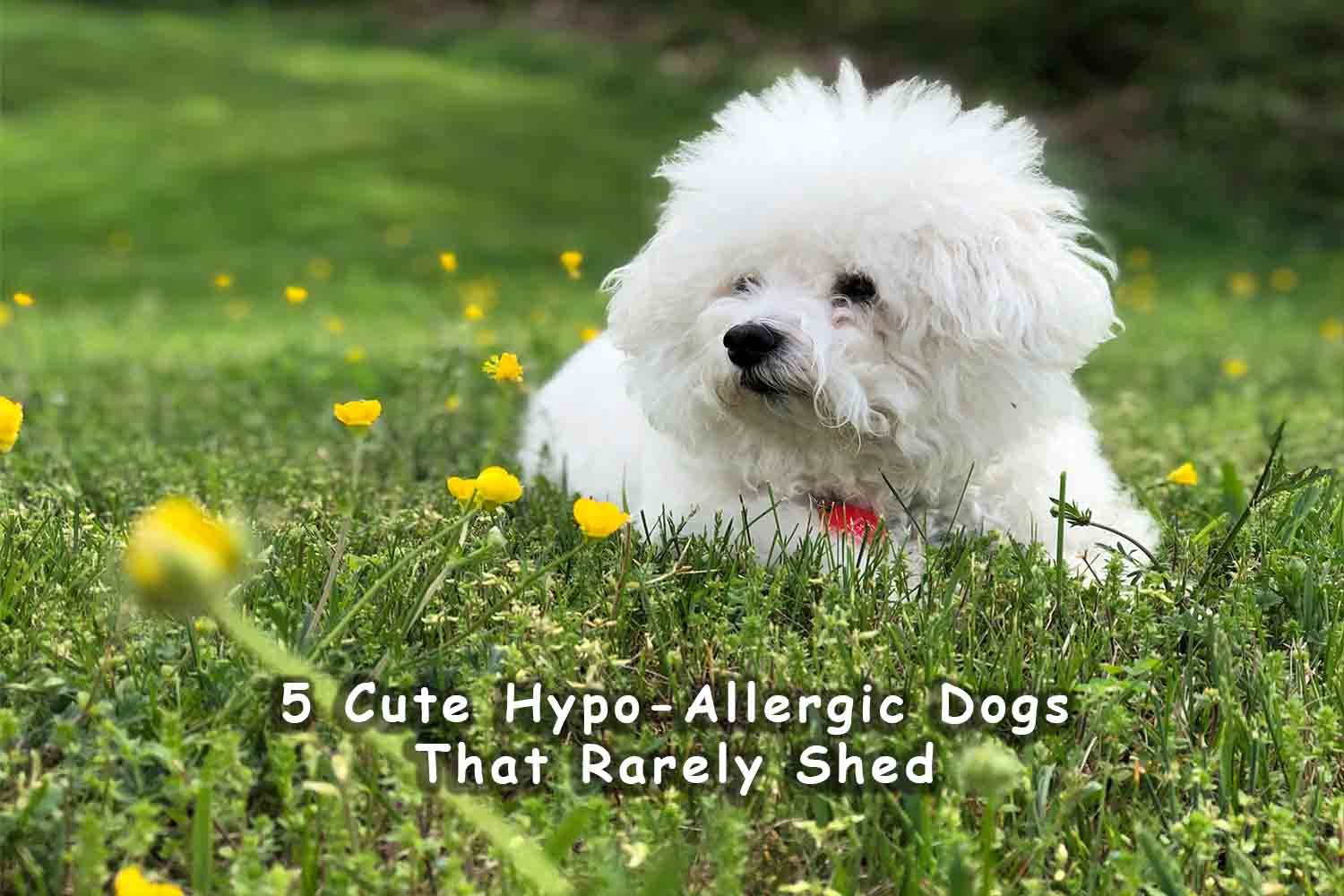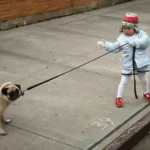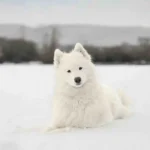Hypo-Allergic Dogs:- Do you love dogs but suffer from allergies? Finding the ideal furry friend can be tough if allergies are happening, but do not worry – there is a way out. Let’s examine some gorgeous hypo-allergic canines in this post that will be wonderful additions to your household while lowering allergens that trigger sensitivity.
Shedding is a common issue to allergy owners and these five cute breeds are animals with low shedding tendencies. From Poodle to the cute Maltese, these allergy friendly dogs will not only bring happiness and friendship but also relief for those prone to allergies.
Join us as we explore the charming characteristics of these breeds, looking into their personalities; how to care for them and how they bring happiness among households who needs a hypoallergenic low-shedding canine partner.
1. Bichon Frise:
One of the most popular dog breeds that lose less quantity of hair is hypo-allergic Bichon Frise. Bichons are appreciated for their curly white fur and joyful personality. They are the best pets especially for those who could be allergic to other breeds of dogs.
These are hypoallergenic breed dogs, that means they do not produce many allergens unlike other dog breeds. Their thick and curly hair traps dust very well, reducing chances to cause any sorts of allergy.
Moreover, Bichons are very social dogs which is why they easily adapt into various types of living conditions. They are also loving, intelligent and versatile. In fact, they are appropriate for both families and individuals.
They are hypoallergenic but they need to be cleaned regularly. They require human companionship and moderate physical activity. In conclusion, the Bichon Frise is generally cute and a good hypoallergenic dog breed.
2. Poodle:
They are smart and friendly dogs, available in various sizes such as toy poodle, miniature poodle and the standard one. Their curly coats usually shed less than that of other dog breeds, hence suitable for people with allergies.
Their thick, wavy fur coat traps doggy dust, that is why Poodles are both attractive looking and hypoallergenic, Therefore Poodle needs frequent grooming in order to keep their coat neat.
They are hypoallergenic and can be trained easily. Poodle perform well in many activities like agility training or obedience training. This is why they make perfect family, individual or senior pets because of their affectionate and adjustable character. Poodles with their unique look and trait of shedding less, make a great option for people looking for a loving pet being hypoallergenic.
3. Maltese:
Maltese dogs are cute and very easy to groom because they rarely shed. These delightful buddies have a silky, long, white coat which needs frequent grooming so as to keep it shiny and avoid matting.
Maltese dogs look good, as well as they have been found out to be allergy friendly and hence are good option for hypersensitive people. They also have a friendly nature making them loveable. The maltese dogs are affectionate, playful and even create strong bond with their owners.
Their size makes them suitable for apartment living as well, but activities like regular walking and playing daily is also essential for their well-being. The Maltese dogs are usually good around kids and other domestic animals; hence they easily fit in any family.
Nonetheless, it is important to note that, as any other dog breed, each individual dog is different and may vary in producing allergens. Therefore, these lovable hypoallergenic companions require routine grooming, balanced feeding and veterinary care for their general body fitness.
4. Shih Tzu:

Shih Tzu’s have a spectacular, long flowing coats that hardly shed. They are also referred to as good pets because of their friendly and loving nature; therefore, they hold great suitability especially for allergy sufferers.
These are luxurious double-coated dogs, having soft undercoat and long outer coats, which needs regular brushing to avoid any knots or tangles. Despite having a lavish fur, they shed very less which makes them a wonderful option to choose if one wants low-allergen pet.
Additionally, they become easily adjustable in an apartment living. Originating from China, they were referred as royal pets thereby portraying a distinguished look. These dogs must walk and engage in healthy playing at regular intervals, so they stay healthy and happy.
Since most Shih Tzu’s are known to create strong bonds with their families at home, potential owners should be ready to spare some time for grooming. In short, Shih Tzu’s are pretty cute and good pets with allergens resistance.
5. Havanese Dogs Breed:
Havanese breed is small, hypo-allergenic dog with less shedding and appears charming in every aspect. These dogs have silky soft fur, and they are not allergenic like other breeds of dogs.
Havanese, a dog breed which came from Cuba is very friendly and can easily fit in any family or even with an individual companion. They are hypo-allergenic since they have hair rather than fur, which probably do not trigger allergies. It is essential for the to groom the dog coat regularly in order to maintain it.
The Havanese is hypoallergenic and these dogs are very intelligent while easy to train. They are friendly in nature, which gives them an ability to survive different environments. They have affectionate nature, plus, they do not shed much; thus this kind of dogs is a perfect choice for people in search of the hypoallergenic breed.
Conclusion For Hypo-Allergic Dogs:
With choosing the right breed, here are some tips for managing allergies when you have a dog:
1. Regular Grooming: Consistent grooming is important. Regular bathing of your dog helps in reducing the level of dust, saliva and loose hair. This activity will minimize allergens in your home environment.
2. Clean Living Spaces: Keep a well-maintained and neat home by vacuuming and getting the floors clean as often possible. Pay close attention to areas where your dog spends most of their time, like the favorite spots there they lie. A HEPA-filtered vacuum catches the allergens effectively.
3. Purifiers: Such gadgets can record the presence of airborne allergens and help to filter them out, providing cleaner air for your breathing as well as that of your doggie.
4. Wash Dog’s Items: Clean your dog’s toys, bedding and other items regularly. This habit ensures that allergens do not gather on things your dog often uses, hence creating a healthier living space.
5. Consult with an Allergist: If allergies still continues, consult an allergist. Professional advice will also point out individual triggers that might be responsible for allergies related to your dog and suggest some personalized strategies to help with such cases. Communication with a healthcare professional ensures that your condition is addressed properly.










